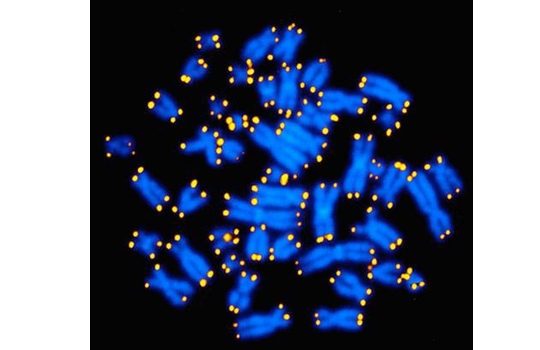Post-traumatic stress disorder (PTSD), has become a significant public health concern. It is already linked to chronic depression, eating disorders, and substance abuse, and can lead to anger and insomnia.
Traumatic stress also appears to accelerate aging. The idea that stress takes years off your life is not new, but researchers at the University of California San Diego and San Diego Veterans Affairs Healthcare System say they have pinpointed a direct link between PTSD and the aging process.
“This is the first study of its type to link PTSD, a psychological disorder with no established genetic basis, which is caused by external, traumatic stress, with long-term, systemic effects on a basic biological process such as aging,” senior author, Dilip V. Jeste, said in a press release.Telomeres, tips at the ends of chromosomes, shorten with each cell replication, and reflect the cellular aging process. People with PTSD had shorter telomeres.
Researchers had previously seen a possible link between psychiatric conditions, such as schizophrenia and bipolar disorder, and acceleration of the aging process. Jeste, who is Distinguished Professor of psychiatry and neurosciences at UCSD, told TheDoctor that it is often the case that people with serious mental illnesses die young. “For example, those with schizophrenia live about 20 years less than those in the general population.” The antipsychotic medications they take are one reason for this, but there may be others.
Is there a similar association between PTSD and early aging? The researchers looked at data on people with medical conditions associated with early aging, such as progeria and Down syndrome, and found their accelerated aging was associated with telomere length.
Telomeres are the repetitive sequences of nucleotides at the end of chromosomes, shown in yellow in the photo above. They are a little like the plastic tips at the end of shoelaces.
Telomeres grow shorter with each cell replication, and are considered a reflection of the cellular aging process. People with PTSD had shorter telomeres and increased levels of inflammatory biomarkers.
Much of the data the researchers reviewed suggested PTSD patients often had a medical condition associated with normal aging, such as cardiovascular disease, dementia, or type 2 diabetes.If treated early and appropriately, accelerated aging may be prevented.
This study reports an association between PTSD and accelerated aging, but it does not establish the cause of this accelerated aging, Jeste explained. It is possible the stress that triggers the symptoms of PTSD also initiates a whole cascade of biological changes that make the person age faster, he said.
People with PTSD have a higher incidence of smoking, alcohol use, or other substance use. Sometimes they are depressed and they are less likely to be active and eat a healthy diet. He said these possible causes are not mutually exclusive.
The group's work demonstrates that PTSD is both a mental and physical illness, said Jeste. So treatment should have mental and physical components. “It is not enough to have psychological treatment. One must treat the whole body,” he added. If treated early and appropriately, accelerated aging may be prevented.





